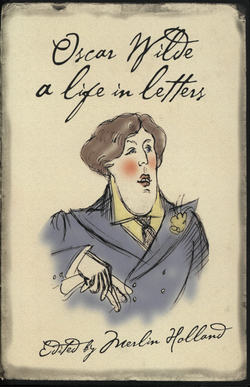Читать книгу Oscar Wilde: A Life in Letters - Оскар Уайльд, Merlin Holland, F. H. Cornish - Страница 7
The Student
Оглавление‘It is too delightful altogether this display of fireworks at the end of my career…The dons are ‘astonied’ beyond words – the Bad Boy doing so well in the end!’
It is all too easy to think of Oscar Wilde as a fin de siecle phenomenon, something like the firework in his story “The Remarkable Rocket’, rising apparently from nowhere, exploding in a spectacularly self-destructive way and gasping as he went out, ‘I knew I should create a great sensation!’ In reality, he was brought up in what today would be considered a well-to-do, upper-middle-class, professional family, living in a fashionable area of Dublin, though not by the conventional parents that such a background might have suggested. His father, William Wilde, was a respected medical man specialising in maladies of the eye and ear, whose work on the Irish census of 1851, hailed at the time as a quite exceptional demographic study, is still in use today as source material for the study of the Great Famine. He was also passionately interested in the history and topography of Ireland and wrote two books on the subject, as well as one on Irish folklore, and catalogued in three volumes the antiquities of the Royal Irish Academy.
Oscar’s mother, Jane, was no less extraordinary in her way: she had played a leading role in the Young Ireland movement of the 1840s writing inflammatory, anti-English articles in the Nation under her pen name ‘Speranza’ and narrowly missed imprisonment alongside the editor, Charles Gavan Duffy, for sedition; she published poetry, essays, and translations from French and German; and she hosted a weekly salon to which came Dublin’s foremost doctors, lawyers, artists and literary figures, together with distinguished foreign visitors. The influence of these two remarkable parents, committed Hibemophiles both, he intellectually and she more emotionally, was to remain with Oscar Wilde throughout his life. Indeed, from prison he would write remorsefully to Lord Alfred Douglas, ‘She and my father had bequeathed me a name they had made noble and honoured not merely in Literature, Art, Archaeology and Science, but in the public history of my own country in its evolution as a nation. I had disgraced that name eternally.’
Jane Elgee and William Wilde were married on 12 November 1851 and their first child, William Charles Kingsbury, was bom on 26 September the following year. Jane was soon pregnant again and on 16 October 1854 she gave birth to her second child. He was christened Oscar Fingal O’Flahertie (he would later add the ‘Wills’ from his father), a veritable mouthful of names by which he was embarrassed at school, proud of at university and dismissive of in later life, saying, ‘As one becomes famous, one sheds some of them, just as a balloonist, when rising higher, sheds unnecessary ballast. All but two have already been thrown overboard. Soon I shall discard another and be known simply as “The Wilde” or “The Oscar”.’ If Willie had been christened with admirable restraint after his own father, Jane’s father and Jane’s mother’s family name, reflecting her new conformity, the new arrival was an excuse to restate her Irishness. Oscar and Fingal were respectively son and father of Oisin, the third-century Celtic warrior-poet and O’fflahertie, as he would occasionally spell it, was in deference to her husband’s links with ‘the ferocious O’Flaherties of Galway’.
The Wildes soon began to find that their house at 21 Westland Row, which backed on to Trinity College, was not only too small for the expanding family, but also lacked the social cachet which William’s growing status as a doctor demanded. Before Oscar was a year old they moved to an ample Georgian house around the corner at 1 Merrion Square and engaged six servants to run it, as well as employing a French maid and a German governess. The latter permitted the children’s education to take place at home until Oscar was ten, when he was sent with his brother to board at Portora Royal School, Enniskillen. It was from there that his first surviving letter was written. His mother had contributed a poem ‘To Ireland’ for the previous (August) issue of the National Review, a pale and short-lived imitation of the magazine of her former firebrand days, the Nation, and the young thirteen-year-old Oscar’s taste for clothes and radical politics is beginning to show.
